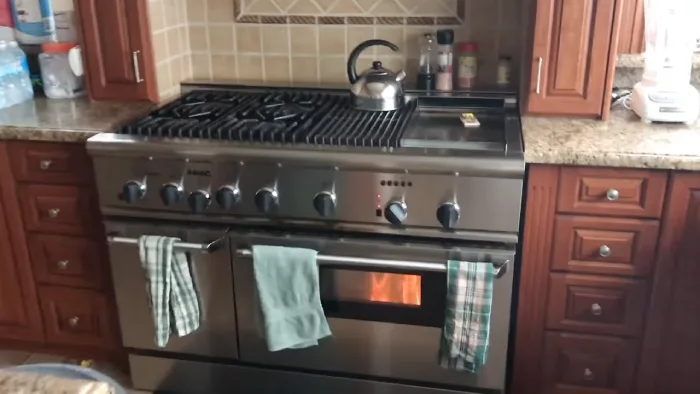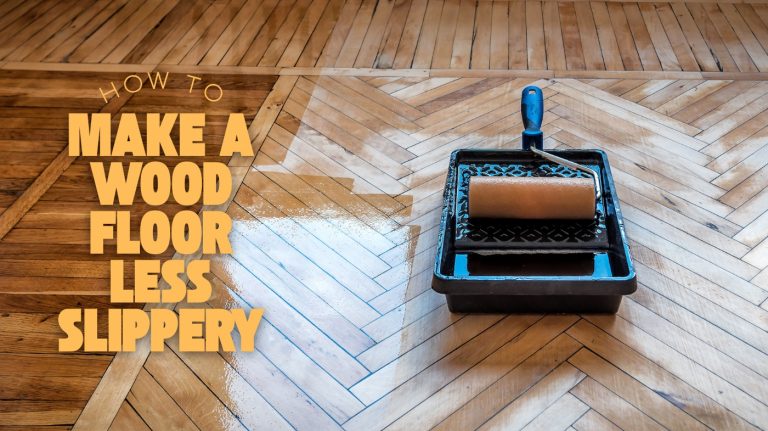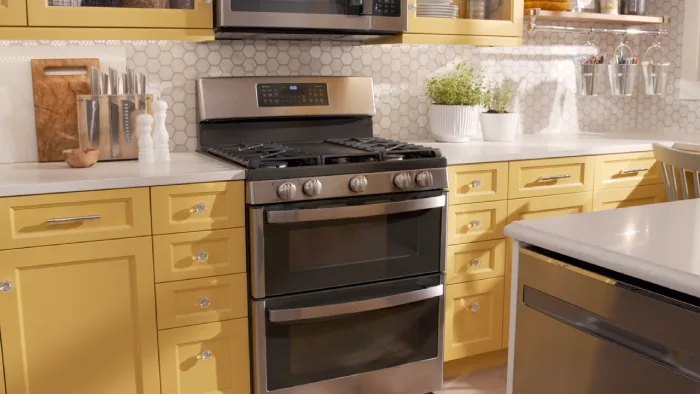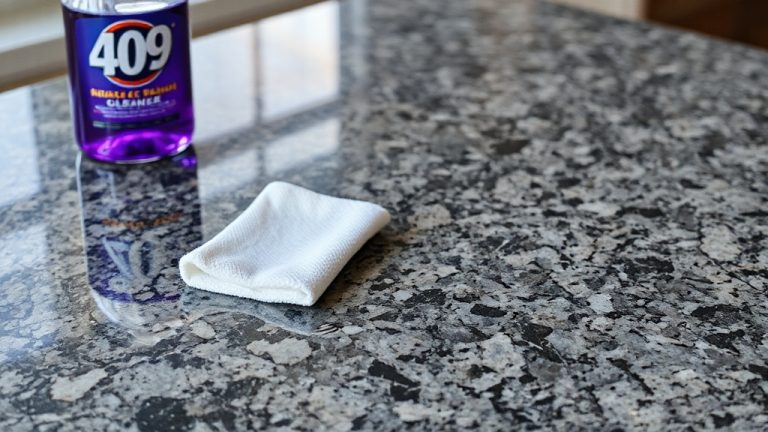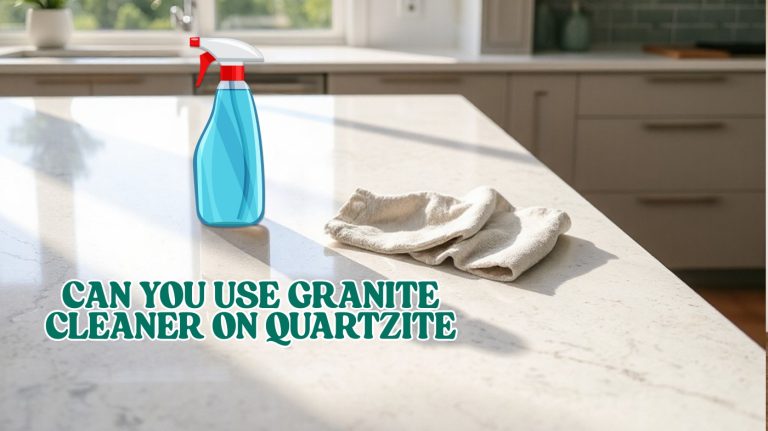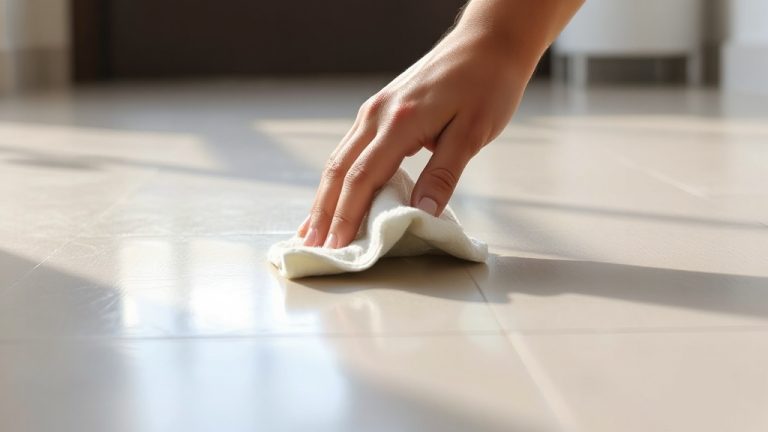Can a Self Cleaning Oven Catch Fire: Risks & Solutions [Stay Safe]
Self-cleaning ovens have become popular kitchen appliances in recent years. Cleaning itself without harsh chemicals or manual scrubbing is an attractive feature for many homeowners.
However, there have been concerns about whether these self-cleaning ovens can catch fire during the cleaning cycle. The safety of self-cleaning ovens has been debated among experts and consumers alike.
While manufacturers claim that their products are designed with numerous safety features to prevent fires, there have been instances where these appliances have caught fire during the cleaning process.
Discover the risks of, and how to protect against, potential fires associated with self-cleaning ovens. Learn what steps you need to take for maximum safety when using these handy appliances in your home.
What Are the Most Common Causes Of Oven Fires?
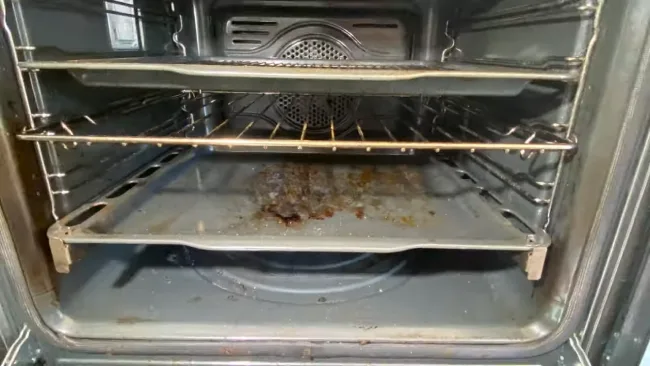
You might be able to get some fire safety perks from self-cleaning ovens, but you still need to be aware of the potential risks. To ensure your kitchen stays safe from flare-ups, here are a few key reasons why an oven could catch on fire:
ONE: Faulty Wiring
The most common cause of oven fires is faulty wiring. Faulty wiring can lead to an electrical short circuit that could cause a fire in your self-cleaning oven. This problem occurs when the insulation around wires breaks down or becomes damaged, causing them to contact each other or other oven parts.
When this happens, electricity flows through these points of contact and generates heat, which could ignite any flammable materials inside the oven.
To prevent faulty wiring from causing an oven fire, it’s important to watch for signs of wear and tear on your appliance’s power cords and wires. If you notice fraying, cracking, or other damage on your oven’s cords or plugs, don’t hesitate to replace them immediately.
Additionally, ensure you don’t overload outlets by plugging too many appliances into one socket, as this can also cause electrical shorts leading to fires.
TWO: Overheating
Another common cause of oven fires is overheating. Overheating can occur if the temperature in your self-cleaning oven goes beyond its maximum limit, causing it to produce too much heat and ignite any flammable materials inside.
This problem may happen because of a malfunctioning thermostat or an error in setting the temperature control.
To prevent overheating from happening, make sure to follow the manufacturer’s instructions on how to operate your self-cleaning oven correctly. Avoid leaving food unattended while cooking, as this could lead to overcooking and overheating.
It’s also essential not to exceed the recommended time for using your oven’s cleaning cycle, as it could increase the risk of overheating. Whenever you notice your self-cleaning oven is overheating, such as emitting smoke or strange odors, turn it off immediately and let it cool before inspecting it.
THREE: Gas Leaks
In addition to overheating, gas leaks are another common cause of oven fires. Gas ovens use natural or propane gas as fuel, and if there is a problem with the gas supply system, it can lead to an explosion.
Gas leaks in your oven may occur due to damaged or faulty gas lines, connectors, valves, regulators, or burners. Poor ventilation or incorrect appliance installation can also contribute to the risk of gas leaks.
To prevent gas leaks from happening, ensure that you have a certified professional install your gas oven and regularly inspect it before use. Make sure all connections are secure and free from damage before using your oven each time.
Additionally, invest in a carbon monoxide detector in case of any undetected leaks.
How to Reduce the Risk Of a Self-Cleaning Oven Catching Fire?
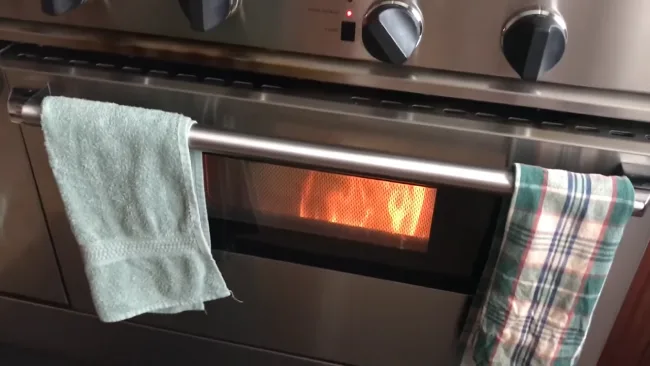
Although self-cleaning ovens have some fire safety benefits, you must still take steps to minimize the risk of a potential fire. To ensure your kitchen stays safe, here are a few key ways to reduce the chance of a self-cleaning oven catching on fire:
1. Regular Maintenance
Keeping your oven in pristine condition is essential for a safe kitchen environment. A self-cleaning option makes it easier to conquer grime and grease, but regular maintenance still needs to be a part of the routine.
While the high temperatures used during self-cleaning can burn off most debris, small bits may get left behind that could pose a fire hazard. To prevent potential fires, it’s important to follow manufacturer instructions when using the self-clean setting.
After cleaning, make sure to wipe up any remaining ash with a damp cloth or sponge. Additionally, check the door gasket regularly to ensure no cracks or tears allow heat and smoke to escape.
In addition to cleaning after each use and wiping down post-self-clean cycle, have the appliance inspected annually by a qualified technician. They can identify any issues such as damaged heating elements or faulty wiring that could cause a fire if left unchecked.
2. Avoid Overheating
Many home fires are caused by appliances that have been left on for too long or at temperatures that exceed their maximum capacity.
To prevent this from happening with your oven, it’s important to use it according to its intended purpose and follow manufacturer instructions.
One common mistake people make is leaving items inside the oven when it’s not in use. This can cause them to accidentally turn on the appliance when they’re preheating or cooking something else, leading to overheating and potentially starting a fire.
Also, don’t use the self-cleaning feature more often than recommended, as excessive heat can damage the oven components.
Consider installing a smoke detector near your kitchen area to minimize risks. Smoke detectors are essential for early detection of potential fires, giving you enough time to evacuate safely and call emergency services if necessary.
3. Look for Potential Hazards
High temperatures during the self-cleaning cycle can be dangerous, so always remove any combustible materials in and around your oven before using it. This includes papers, boxes, food packaging, and kitchen towels.
Furthermore, don’t store flammable liquids near or inside your oven. Inspect the oven for any signs of wear and tear and replace parts as needed. If you don’t feel comfortable doing this on your own, contact a qualified technician to help.
When to Call For Professional Help (If An Oven Catches Fire)
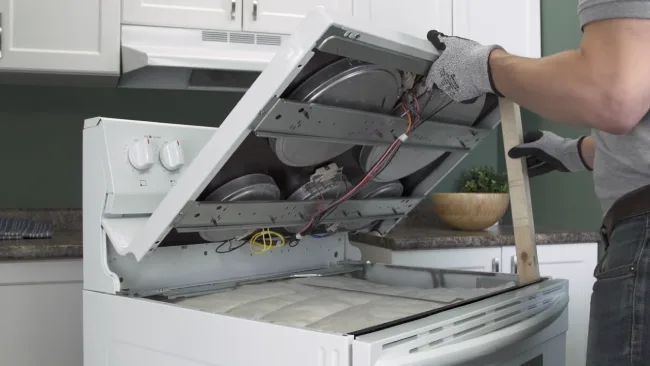
When it comes to self-cleaning ovens, there is a potential for fire hazards if not used properly. While the cleaning process involves high temperatures that can burn off food debris and grease, some models may malfunction or have faulty components that lead to overheating.
If you notice any signs of smoke or burning smells coming from your oven while in use, turn it off immediately and unplug it from the power source. Do not attempt to open the oven door or put out the flames with water, as this could exacerbate the situation. Instead, call the emergency number and wait for the responders to arrive on site.
It’s always better to be safe than sorry when dealing with potential fire hazards in your home. Don’t hesitate to contact a professional technician if you’re unsure how to use your self-cleaning oven or suspect something’s wrong safely. They can assess the problem and make the necessary repairs.
Does Leaving the Oven For Self-Cleaning For Hours Cause a Fire?
Leaving an electric self-cleaning oven on for an extended period of time can potentially lead to a catastrophic fire. Although most self-cleaning ovens automatically shut off after a specific time frame, large chunks of food or excess grease inside the oven can cause it to overheat and catch fire.
Follow the manufacturer’s instructions carefully, don’t leave the oven unattended while it’s being cleaned, and regularly remove any buildup that might be a fire hazard, as we outlined above. Overall, taking precautionary measures can prevent a destructive fire and maintain the safety of your home and loved ones.
How Long Do You Leave a Self-Cleaning Oven On to Keep It Safe?
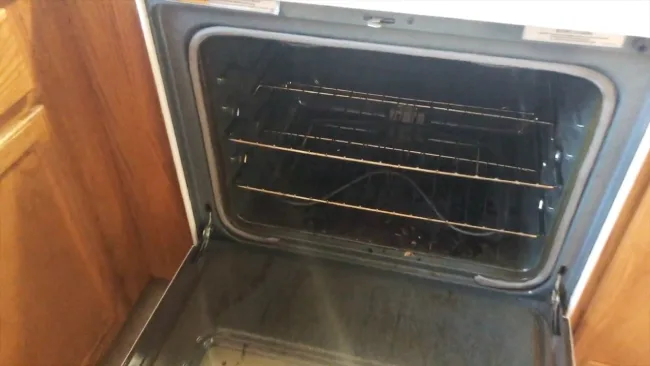
To ensure the safe operation of a self-cleaning oven, it is essential to follow the manufacturer’s recommendations accurately. Generally, a self-cleaning cycle lasts 2-4 hours, depending on the degree of soiling in the oven.
A two-hour cycle is usually enough for light cleaning, while a more soiled oven might require three to four hours. Letting the oven cool after the cleaning cycle is crucial, as it will not open until the temperature reaches regular baking levels.
It is also essential to note that the oven’s door locks automatically during the self-cleaning cycle to prevent accidental burns or injuries. Therefore, do not try to open the oven, and avoid placing anything on top of it until it has cooled down completely.
Additionally, remove any heat-sensitive items, such as plastic or aluminum foil, from the oven before starting the self-cleaning cycle.
Self-Cleaning Ovens: From Convenient to Flammable
Self-cleaning ovens can be a real convenience for those with busy lifestyles. However, it’s important to be aware of the potential dangers associated with this feature. Though these ovens are designed with safety features, they have been known to catch fire during cleaning.
To ensure total kitchen safety and avoid any fire risk, it is crucial to adhere strictly to your appliance’s manufacturer’s instructions. However, cleaning an oven consistently can be just as important. Build-ups of grease or food particles are one of the leading causes of home fires.

